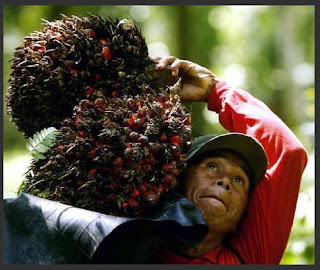Sri Lanka stock picks site has been developed to give first hand information with regard to share trading opportunities available for investors who do not like go through lengthy research reports, calculations,etc but to have a clear idea about stocks that have future up side potential.Our service is just not for day traders but for the investors who wish to see their money growing in the long run.Our main objective is to provide information relating to trading under one roof.
Tuesday, May 4, 2010
Agalawatte,Elpitiya & Namunukula Plantations - will benefit from Oil Palm cultivations
The Planters' Association of Ceylon says diversification by Regional Plantation Companies (RPCs) into non-traditional areas such as palm oil cultivation and processing, is showing good results.
The AEN palm oil processing mill, a joint venture between Agalawatte, Elpitiya and Namunukula Plantations, is one such project that has shown impressive results in terms of high productivity, improved value addition and export capability and higher ROIs for the plantation companies while also benefiting domestic consumers.
This local production of palm oil has also reduced import dependence for vegetable oils and has helped consumers by stabilising prices of vegetable oil," explained Ruwan Goonewardene, the General Manager of AEN Oil Palm Processing Pvt Ltd. The AEN oil palm mill is one of two factories in Sri Lanka that produces palm oil from locally grown oil palm plantations.
AEN says the palm oil venture is a win-win operation for both the cultivator and the palm oil mill, as seen in countries such as Malaysia and Indonesia, where economies have grown due to such cultivation.
Oil palm venture
The AEN oil palm cultivation project was initiated in 2000 by the three RPCs Agalawatte, Elpitiya and Namunukula. The 3 plantation companies began the cultivation of palm trees by bringing down seedlings from Papua New Guinea. The area between Kalutara and Akuressa was selected to farm palm trees, due to more conducive rain fall patterns. At the moment about 3,000 hectares have been planted in oil palm.
As a strategic step in crop diversification and based on the trends observed in the South Asian plantation industry, Agalawatte, Elpitiya and Namunukula plantations embarked on an Oil Palm Cultivation and Processing Project. The joint venture agreement was signed in 2000 and a BOI agreement, to set up the palm oil processing facility, was signed in 2003," said Goonewardene.
The AEN palm oil mill was commissioned in 2007, in a 4 Hect land in Mohameddi Estate in the Kalutara District belonging to Agalawatte Plantations PLC, using Malaysian technology. Malaysia is one of the world's largest producers of palm oil.
The AEN mill, purchases palm fruit from the cultivating estates and manufactures crude palm oil and crude palm kernel oil for export as well as for local consumption. The mill also produces palm kernel meal, which is used as an animal feed ingredient.
"The crude palm oil is sold to refineries, to manufacture vegetable oils that are used for cooking purposes. Crude palm kernel oil, which is derived from the seed of the oil palm fruit, is used for manufacturing soap. The kernel meal is also sold as animal feed ingredient," said Goonewardene.
Expanding production
The demand for edible oil in Sri Lanka is about 10,000 metric tonnes per month and the Company expects to expand production over the coming years.
"Our palm trees are still young. So the yields will increase over the next few years. At the moment the average yield is about 12 - 14 metric tonnes per year, per hectare, but this yield will further increase over the next 4 - 5 years," said Goonewardene.
"The 03 RPCs, Agalawatte, Elpitiya and Namunukula Plantations are also looking at expanding the acreage under oil palm. "The 03 Companies are also hoping to expand cultivation from the current 3,000 hectares to 4,000 hectares in the next 3 years," he added.
Environmentally friendly
AEN maintains that contrary to some theories, oil palm cultivation does not deplete ground water, and says the mill itself, is environmentally friendly and a good example of best practice in the use of a biomass-fuelled energy system from agricultural waste as a sustainable means of addressing energy supply issues.
source - www.dailymirror.lk
Subscribe to:
Post Comments (Atom)

No comments:
Post a Comment